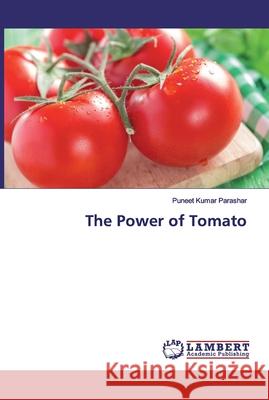The Power of Tomato » książka
The Power of Tomato
ISBN-13: 9786200008930 / Angielski / Miękka / 2019 / 208 str.
Tomato and its products (tomato juice, ketchup, tomato paste, tomato soup, pizza sauce and spaghetti sauce) contribute more than 80% of dietary lycopene intake and about 30% of total carotenoid intake in the human diet. Tomato paste with peels improves bioavailability of carotenoids compared to that without peels. The processing of tomatoes increased bioavailability of lycopene due to its release from tissue matrix. Beside lycopene, tomato contains vitamins A and C, folic acid, alpha-lipoic acid, choline, beta-carotene and lutein; all of which have antioxidants properties and along with lycopene they contribute effective protection against ROS and peroxidation. Epidemiological studies have revealed that dietary intake of lycopene decrease risk for gastric cancer and has anti proliferative effects on prostate and breast cancer cell lines. The consumption of tomato products reduces risk of prostate cancer. It prevents osteoporosis and oxidative stress thereby minimizes risk of chronic disease. As evident from the foregoing account Tomato fruits are rich in lycopene and other antioxidants, such as vitamin A and C, folic acid, alpha-lipoic acid, choline, beta-carotene and lutein.











